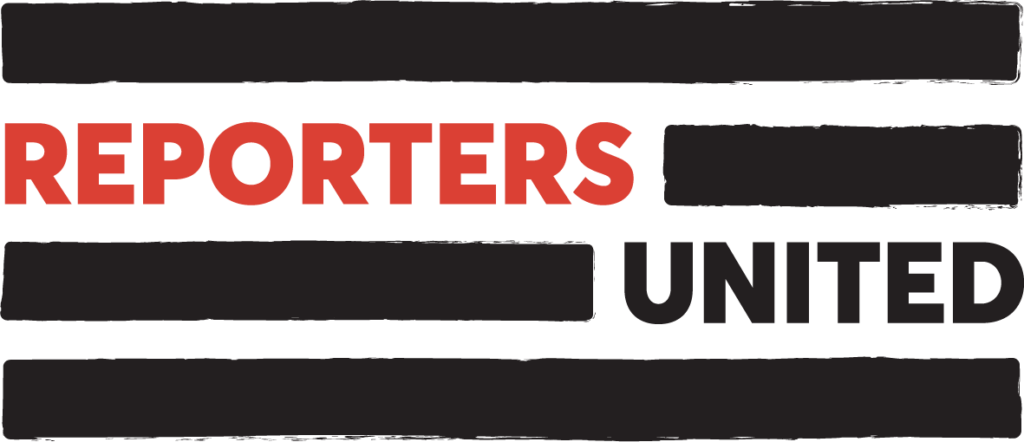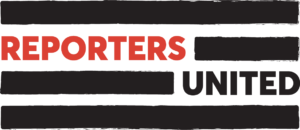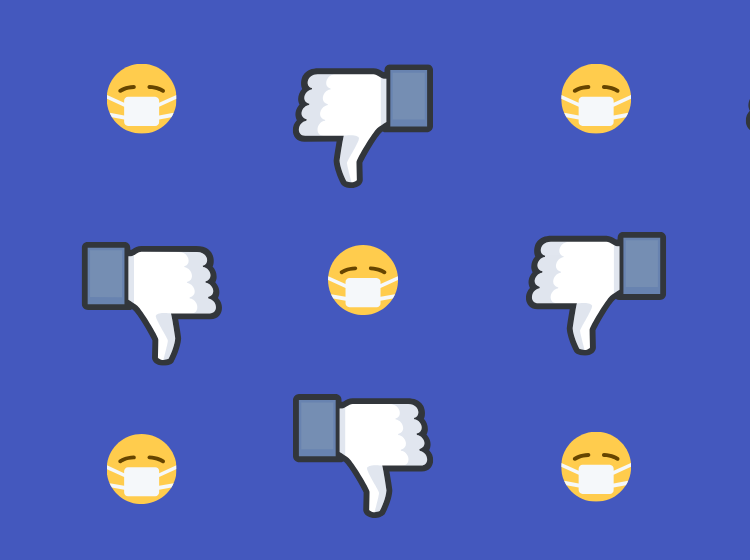Adverts and sponsored posts for face masks and other medical supplies continue to circulate on Facebook and Instagram, despite efforts to crack down on profiteers and fraudsters who are exploiting the sky-rocketing demand created by the SARS-CoV-2 pandemic.
On March 6, Facebook announced that it was “temporarily banning advertisements and commerce listings, like those on Marketplace, that sell medical face masks,” with the aim of preventing the exploitation of fears over the Coronavirus pandemic.

Likewise Instagram (which is owned by Facebook) tweeted that it was “Banning ads exploiting the situation.”

Of its new policy, Facebook wrote, “Our teams are monitoring the COVID-19 situation closely and will make necessary updates to our policies if we see people trying to exploit this public health emergency.”
Yet over three weeks later, such adverts continue to circulate, raising questions about the ability or willingness of Facebook to remove these ads and to identify and block their creators, who pay Facebook to promote their claims.
A Twofold Problem
Essentially the ads for medical face masks and other supplies pose two related problems.
Firstly, they promote profiteering and panic buying, exacerbating acute shortages of masks and other supplies already being faced by the healthcare professionals who require them in the frontline battle against the pandemic.
Bodies such as the World Health Organization (WHO) have repeatedly stressed that medical face masks provide little added benefit to healthy members of the public already taking protective measures such as practicing social distancing and regularly washing their hands. According to the WHO, masks are only recommended for individuals who are caring for people suspected of being infected with SARS-CoV-2, or displaying symptoms themselves.
The CDC made it explicitly clear that “The cloth face coverings recommended are not surgical masks or N-95 respirators. Those are critical supplies that must continue to be reserved for healthcare workers and other medical first responders”
This advice, however, has not stopped many from purchasing large quantities of face masks. As early as late February – even before numbers of confirmed Coronavirus cases surged in Europe and the US – the US Surgeon General Jerome Adams implored citizens to stop buying medical masks, warning of looming critical shortages.
More recently, the Centers for Disease Control and Prevention (CDC) has issued updated guidance now recommending widespread use of simple cloth masks by the public. However, again, these are not intended to protect the wearer, but others – their purpose is to help curb the spread of the disease by individuals who are infected but who may not have symptoms. Further, the CDC made it explicitly clear that “The cloth face coverings recommended are not surgical masks or N-95 respirators. Those are critical supplies that must continue to be reserved for healthcare workers and other medical first responders, as recommended by current CDC guidance.”
But beyond the face mask shortage, many Coronavirus-related adverts on social media are problematic for a different reason: outright fraud.
The widespread fear caused by the virus, combined with increasing numbers of people under “stay home” orders across the globe, has already led to a surge in the number of cybercriminals seeking to exploit the situation.
As European Commission President Ursula von der Leyen noted in a March 24 video address, “Unfortunately, criminals take advantage of this. They follow us online and exploit our concerns about the Coronavirus. Our fear becomes their business opportunity. The amount of cybercrime in the EU has increased. The number of fake medicines, disinfection sprays or miracle cures sold online is staggering.”
Interpol too has warned of the rising tide of online fraud linked to the Coronavirus pandemic, stating on March 13 they had already “assisted in some 30 Covid-19 related fraud scam cases with links to Asia and Europe, leading to the blocking of 18 bank accounts and freezing of more than USD 730,000 in suspected fraudulent transactions.”

“Instead of receiving the promised masks and supplies, unsuspecting victims have seen their money disappear into the hands of the criminals involved,” Interpol wrote of the fraud schemes.
Interpol: Instead of receiving the promised masks and supplies, unsuspecting victims have seen their money disappear into the hands of the criminals involved
You don’t find the ads, they find you
Understanding what products and services are being advertised on Facebook at any given time is complicated, given that each user is shown content tailored to them. However, it is possible to coax Facebook’s algorithms to show a user ads related to purchasing face masks and other medical supplies. This can be done by searching for medical gear via Google and visiting relevant sites. Cookies are then downloaded onto a user’s phone or computer, enabling companies advertising medical supplies on Facebook to target that user as a prospective buyer.
When reporters for Investigate Europe did this in various European countries, Facebook and Instagram promptly displayed them sponsored content that clearly violated the company’s own ban on Coronavirus-related adverts. Additionally, many of these ads showed clear signs of being part of fraudulent schemes.
Many of the ads showed clear signs of being part of fraudulent schemes

For instance, one such ad for medical face masks seen recently by Investigate Europe was linked to a Facebook Page called Pautty.
Even a cursory visit reveals it to be far removed from an established seller of medical equipment. Featuring a romantic profile image of a couple silhouetted in front of a giant moon, the page says it specializes in “high-quality personalized jewelry”. It has a total of 4 followers.

The ad and page both link to a website (magicgifts.info) selling medical face masks that appear to have been hastily added to an eshop alongside items like its “Customized Moon Lamp” and “Personalized Photo Night Light – Bluetooth Music Player”. The face masks are advertised as protection against Covid-19 and are offered at $49.93 per box of 50. On the order page beneath the item a countdown warns, “Hurry! Only 11 Left in Stock,” with the number steadily counting down. When the time is up, it starts all over again.

Investigate Europe found dozens of similarly questionable websites – in several languages: English, German, Italian, Polish, Greek – advertising face masks and other Coronavirus-related goods through Facebook and Instagram. In their fine print (where this exists) many state that refunds are only available for non-sale items – but only offer items that have been “discounted”. Others offer “testimonials” that are clearly fraudulent, rife with unnatural grammatical errors and linked to images of their supposed authors that a quick Google image search reveals have been lifted from elsewhere.
Perhaps most damning is not that the ads exist at all, but how sloppy many of them are, flagrantly violating Facebook’s own bans without being flagged as problematic.
Yet another ad for face masks linked to a page called GaowenWu Page, featuring a profile image of a palm tree and a cover photo of an anime cartoon. In the “About” section it listed itself as the page of a “News Presenter”.

The ad itself features a large image of a woman wearing a medical face mask underneath the (computer readable) text,
“Hurry ! Disposable Medical surgical protective Mask in stock available.50Pcs per Box. We’re running low on stock!!! We’re running low on stock!!!”
If such an ad can slip through Facebook’s automated filters, one wonders what these are looking for.

Aside from Facebook’s March 6 ban on medical masks, such ads also violate a policy announced earlier in late February “prohibiting ads for products that refer to the Coronavirus in ways intended to create a panic or imply that their products guarantee a cure or prevent people from contracting it. For example, ads for face masks that imply they are the only ones still available or claim that they are guaranteed to prevent the virus from spreading will not be allowed to run on our platforms” (emphasis added).

More examples of face mask ads from Facebook and Instagram




Facebook Responds
When Investigate Europe raised the issue of the problematic Coronavirus-related ads with Facebook, a spokesperson responded that the company was “focused on preventing exploitation of this crisis for financial gain” and had removed “millions of ads and commerce listings”.
“While enforcement is not perfect it continues to improve and we have put several automated detection mechanisms in place to block or remove this material from our platform,” the spokesperson said.
Such positivity over the progress made has been echoed by the European Commission. On 23 March 2020, Justice Commissioner Didier Reynders wrote to a number of platforms, social media, search engines to ask for their cooperation in taking down scams from their platforms. A European Commission official told Investigate Europe that since Reynders’s letter “the number of products/offers/ads withdrawn have been very significant, up to one million in a week, on the biggest operator, with hundreds thousands of price gouges detected.”
At Facebook’s request, Investigate Europe shared some of the problematic ads its reporters had discovered on Facebook and Instagram, screenshots of which can be seen below. The company quickly removed them, but at the time of writing many others can still be seen on the platforms
At Facebook’s request, Investigate Europe shared some of the problematic ads its reporters had discovered on Facebook and Instagram, screenshots of which can be seen below. The company quickly removed them, but at the time of writing many others can still be seen on the platforms, raising serious questions as to the true efficacy of Facebook’s “automated detection mechanisms”. To date, Facebook effectively appears unable (or unwilling) to prevent itself from being paid money to promote even the most questionable of sellers hawking medical supplies in the midst of a pandemic.
There is little way of knowing just how many such ads are currently circulating on Facebook, how many impressions and clicks those ads have garnered – or how much money Facebook has been paid to show them



The issue is further clouded by a profound lack of transparency. While Investigate Europe’s journalists were able to get ads for masks displayed to them with frightening ease, there is little way of knowing just how many such ads are currently circulating on Facebook, how many impressions and clicks those ads have garnered – or how much money Facebook has been paid to show them. When Facebook was asked for its own estimates, the company failed to respond.
Meanwhile the greater public has few places to turn to other than the company itself to monitor and to combat bad behavior. In response to questions about the issue, the European Commission and Interpol both declined to provide estimates as to the ads’ prevalence. Each also separately noted that their role is one of support and coordination.
“The Commission is not an enforcement agency for consumer law. Enforcement (issuing fines etc.) remains the competence of the national authorities also in these contexts,” a Commission official told Investigate Europe.
The link between Facebook’s business model and disinformation
But there appears to be little chance of such fines or other penalties being levied in Facebook’s case. To date, the approach from European governments and the European Commission has been one of hoping internet giants do the right thing as agreed under the voluntary EU Code of Practice on Disinformation.
In late March, European Commission Vice President Věra Jourová met with representatives of major digital platforms who are signatories of the code (among them Facebook, Twitter, Google and Microsoft) to discuss the spread of disinformation related to the outbreak of Covid-19.
Following the meeting, Jourová acknowledged that the platforms have put measures in place to remove ads related to protective equipment such as masks. However she observed that “gaps remain in fully enforcing these new policies” and urged platforms to “offer more evidence that the measures they have taken are working well.”
Speaking indirectly, she also noted that beyond blocking exploitative ads, the companies should also ensure that they are not in fact assisting criminals by providing them with information that allows them to target the most fearful and gullible users. “It is crucial to remove the financial incentives from clickbait disinformation and profiteering scams which continue to be an issue, including to ensure that targeting based on information regarding vulnerabilities or fears about the disease are not available, even indirectly,” (emphasis added).
Beyond blocking exploitative ads, the companies should also ensure that they are not in fact assisting criminals by providing them with information that allows them to target the most fearful and gullible users
Of course, that runs counter to the business model of companies like Facebook and Google who have built multi-billion euro empires precisely on their ability to target ads with an unprecedented degree of sophistication. But beyond imploring major digital platforms to behave responsibly, the European Commission has few other tools at its disposal. The EU Code of Practice on Disinformation may be bold in its aspiration, but it is also non-binding. When it was signed in 2018, critics warned the Commission that its reliance on voluntary actions and failure to establish penalties amounted to giving major digital platforms carte blanche for their role in spreading disinformation.
This toothlessness was no accident, but came about thanks in part to intense lobbying on the part of the digital giants. A June 2019 report by Investigate Europe revealed that Google and Facebook had “arm-wrestled” EU experts in order to avoid scrutiny on their business models.
One year later, and despite the urgency of the pandemic, the Commission remains reluctant to engage in a more hands-on approach. Commissioner Reynders has used strong language, stating recently, “We will not accept that traders play on consumers’ fears.” But he has so far continued to present the internet giants as part of the solution as opposed to the problem. “Some platforms, such as Amazon and Facebook have voluntarily taken action against such publicity.” Key here is the use of the word “voluntarily”.

Face Masks and Fake News
As the world battles a virus that has already crashed the global economy and threatens to kill hundreds of thousands, giants like Facebook are once again in a position to facilitate bad actors and to profit from them.
While some may see the issue as one that can be engineered away through the creation of better AI systems, or more robust human moderation, for others it goes to the heart of the platforms’ business model, one that allows them to profit handsomely from the circulation of disinformation.
Monique Goyens, director general of The European Consumer Organisation (BEUC), an umbrella organization of 45 European consumer groups from 32 countries, took part in the High Level Group that led to the Code of Practice on Disinformation, arguing at the time that it did not go far enough. She states that the current situation vindicates their advocacy of a harder line towards the digital giants.
“The Covid-19 pandemic shows the dangers of online misinformation. False advice can put people’s lives at risk,” Goyens said, adding that while the digital giants had made some positive moves, “We must bear in mind that tackling disinformation cannot be detached from addressing the business model of the platforms which is based on user engagement with content. And since fake news travels faster than real news, without discussing how the platforms’ advertising business models estimate online disinformation we won’t solve the problem of spreading disinformation.”
“The Covid-19 pandemic shows the dangers of online misinformation. False advice can put people’s lives at risk”
This point was echoed by German MEP and former candidate for the presidency of the European Parliament, Ska Keller. In an interview with Investigate Europe she stated that Facebook in particular should, “put its cards on the table” and called for “competition tools to limit the power of the platforms and the disinformation spread through them.”
The prevalence of banned ads for medical masks on Facebook ultimately casts a deep shadow over broader issues – namely its and other platforms’ supposed ongoing efforts to regulate fake news. If Facebook cannot – or will not – filter out something as clearly identifiable as an advert for medical masks in the height of a pandemic, then what hope do its algorithms and moderators have when it comes to the far trickier terrain created by concerted and sophisticated disinformation campaigns?
The article was updated on April 4 to include the recommendation by CDC regarding the use of cloth masks.
This investigation was done in cooperation with Reporters United, the Greek centre for investigative journalism, and was edited by Pavlos Zafiropoulos. It has been published in German with Buzzfeed Deutschland. A previous version has been published by Thodoris Chondrogiannos in Greek by Inside Story.
Click here for more Covid-19 reporting from Investigate Europe

Click here for Investigate Europe’s graph based on hourly updated data from Johns Hopkins University. This unique graph has been developed by Investigate Europe in order to aid research and a greater understanding of the situation we face in Europe.





